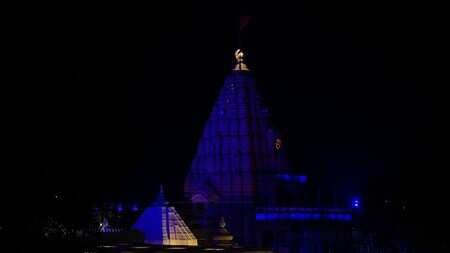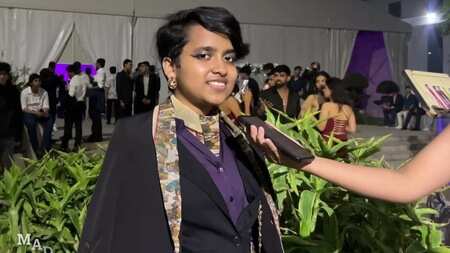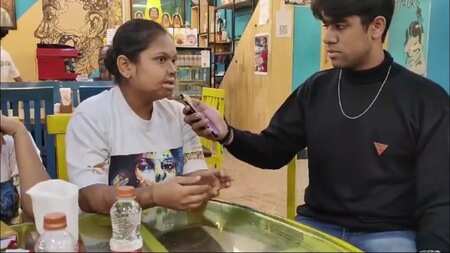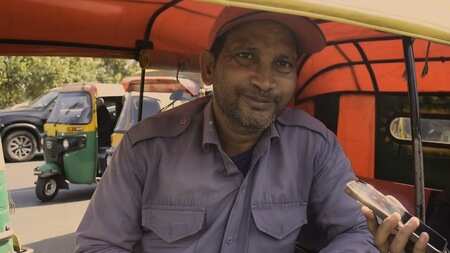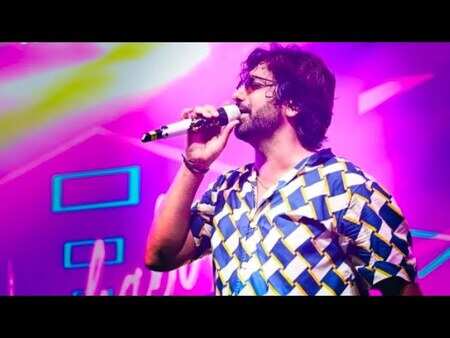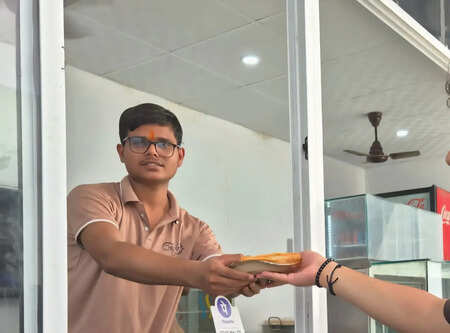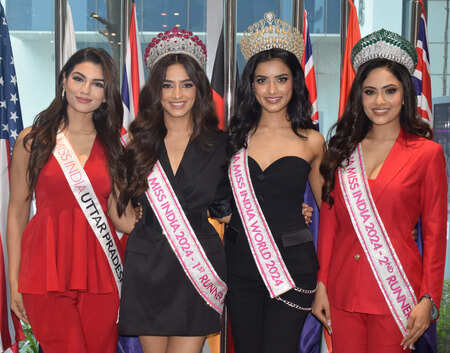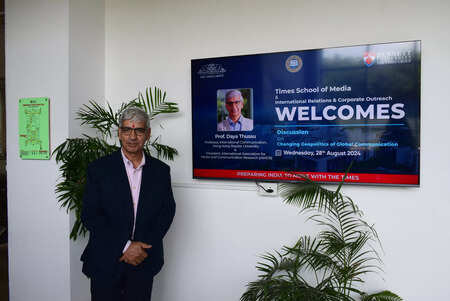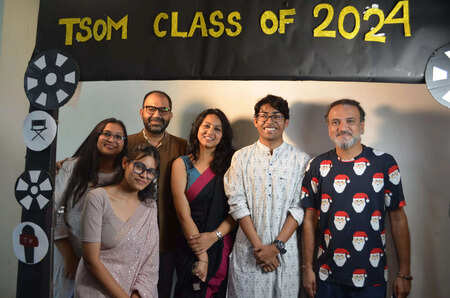When the Mic Trembles - The Story of Indian Comedians
Times of Bennett | Updated: Oct 11, 2025 13:02

Correspondent- Navya Arora
When humor must ask for permission, democracy starts whispering.
"I hope I don’t get arrested for this one.”
That’s how a comedian recently opened his set. The crowd laughed - but uneasily, because in India today, laughter comes with a risk.
Not long ago, stand-up comedy felt like a cultural awakening.Vir Das questioned identity, Zakir Khan turned heartbreak into poetry, and Biswa made engineering trauma a national inside joke. It was fearless, relatable and finally ours. A single mic had become India’s newest instrument of truth. Then, the laughter began to fade.

Vir Das was branded “anti-national” for his Two India’s monologue (2021). Even SamayRaina , who is known for his dark humour and chess playing streams, faced trolling and boycott calls when old jokes resurfaced online. In 2021, Munawar Faruqui was jailed because of his show and accused of “hurting sentiments” for jokes he hadn’t made. Kunal Kamra faced contempt charges for tweets. When even light-hearted comedians must apologise for words said years ago, it’s clear that no one is safe.
The threat isn’t only legal, it’s cultural. We must reform outdated laws like Section 295A that are too easily weaponised against freedom of expression. Venues cancel shows “to avoid trouble.” Platforms reward “safe comedy.” Audiences judge every punchline for political alignment. The stage has become a courtroom.
But humour isn’t the enemy - it’s the mirror. A society that can laugh at itself is a confident one. When jokes are censored, it isn’t laughter that dies; it’s conversation. Still, in basements and cafes across cities, underground comics persist. No cameras. No sponsors. Just a spotlight, a voice, and the kind of laughter that feels dangerously free.
It’s fragile - but it’s real.

If we want that freedom to last, we must outgrow our fragility, reform outdated laws. Support artists instead of abandoning them at the first outrage and trolling them on social media. And as audiences, learn the difference between disagreement and disrespect. Offence is a feeling; censorship is a decision. Because every time a comedian takes the
stage, he isn’t only chasing laughs he’s testing how free this country really is. And every time we laugh with him, we reclaim a little of that freedom.
“The joke’s not on the comedians anymore. It’s on all of us.”
The writer is a media student , storyteller and a pop culture enthusiast. Through her column “society in stereo ”
she aims to explore the things we usually consume just for entertainment uncovering deeper perspectives and meanings hidden beneath them.
When humor must ask for permission, democracy starts whispering.
"I hope I don’t get arrested for this one.”
That’s how a comedian recently opened his set. The crowd laughed - but uneasily, because in India today, laughter comes with a risk.
Not long ago, stand-up comedy felt like a cultural awakening.

Vir Das was branded “anti-national” for his Two India’s monologue (2021). Even Samay
The threat isn’t only legal, it’s cultural. We must reform outdated laws like Section 295A that are too easily weaponised against freedom of expression. Venues cancel shows “to avoid trouble.” Platforms reward “safe comedy.” Audiences judge every punchline for political alignment. The stage has become a courtroom.
But humour isn’t the enemy - it’s the mirror. A society that can laugh at itself is a confident one. When jokes are censored, it isn’t laughter that dies; it’s conversation. Still, in basements and cafes across cities, underground comics persist. No cameras. No sponsors. Just a spotlight, a voice, and the kind of laughter that feels dangerously free.
It’s fragile - but it’s real.

If we want that freedom to last, we must outgrow our fragility, reform outdated laws. Support artists instead of abandoning them at the first outrage and trolling them on social media. And as audiences, learn the difference between disagreement and disrespect. Offence is a feeling; censorship is a decision. Because every time a comedian takes the
stage, he isn’t only chasing laughs he’s testing how free this country really is. And every time we laugh with him, we reclaim a little of that freedom.
“The joke’s not on the comedians anymore. It’s on all of us.”
The writer is a media student , storyteller and a pop culture enthusiast. Through her column “society in stereo ”
she aims to explore the things we usually consume just for entertainment uncovering deeper perspectives and meanings hidden beneath them.

